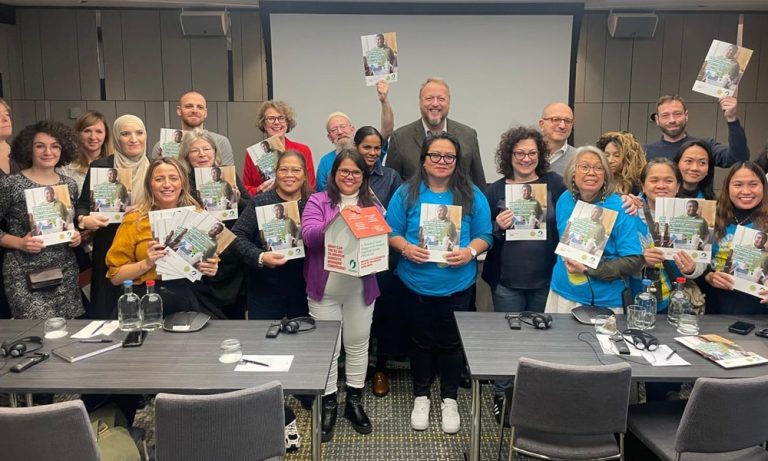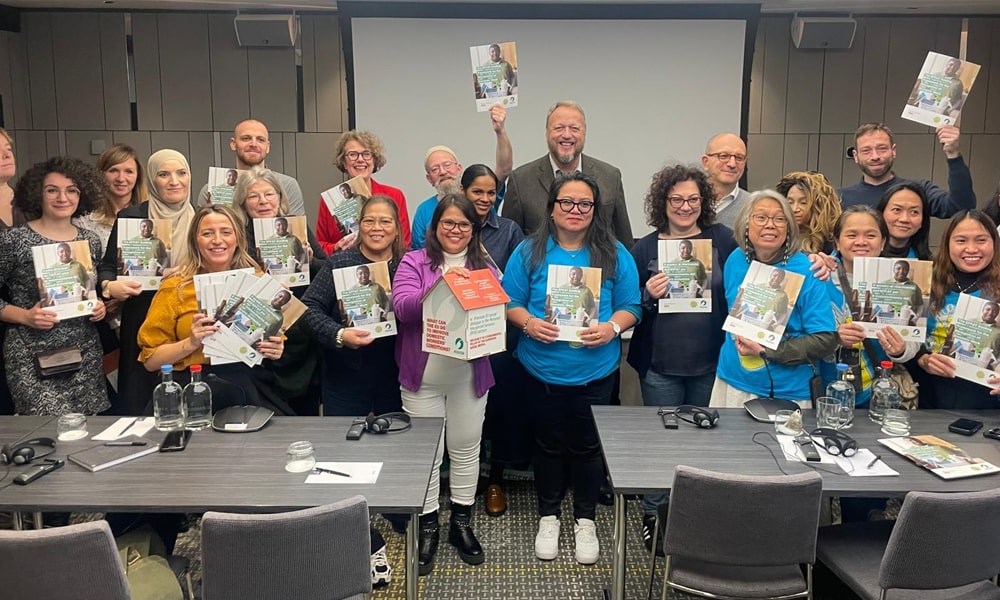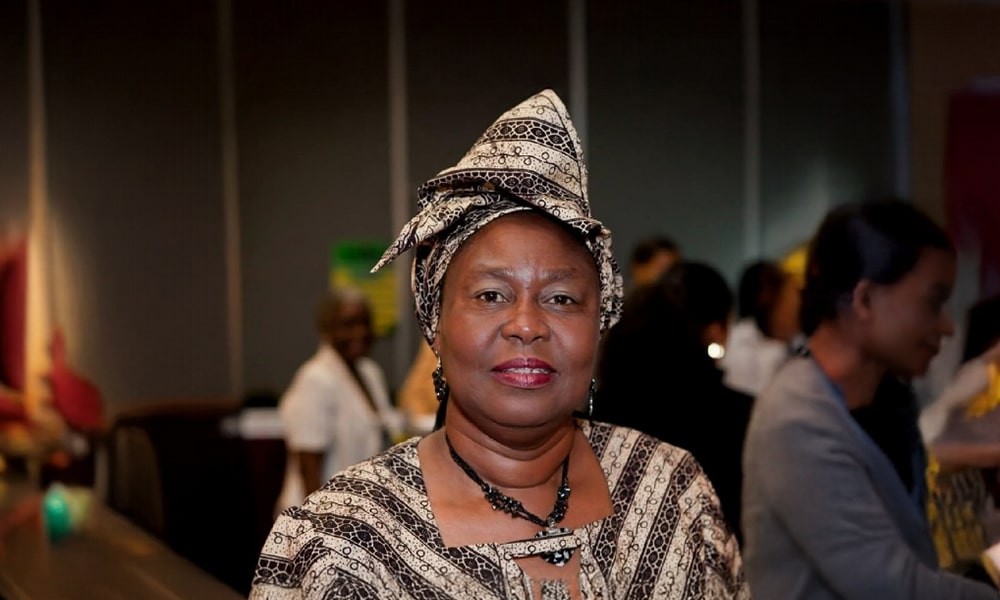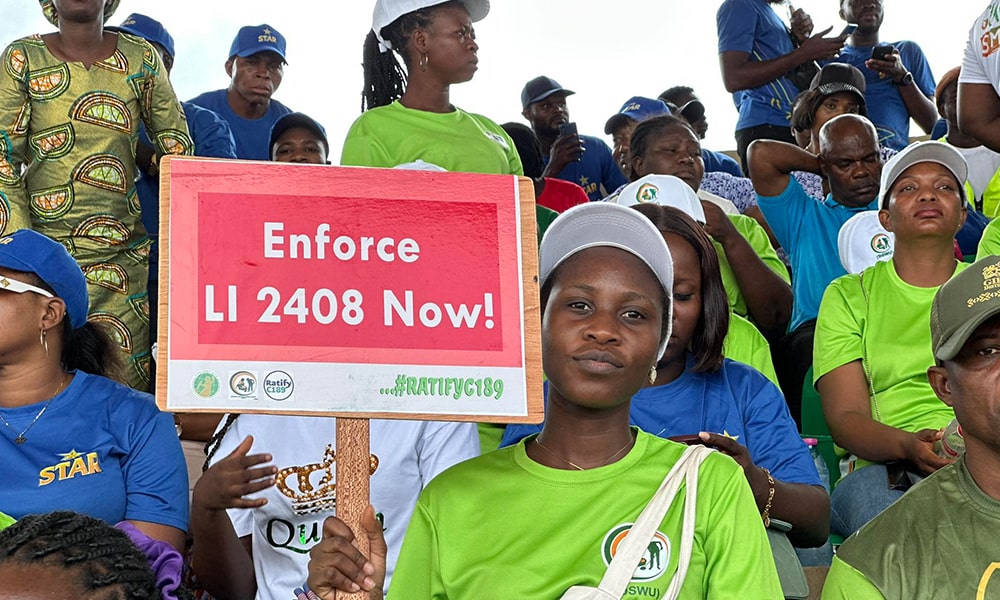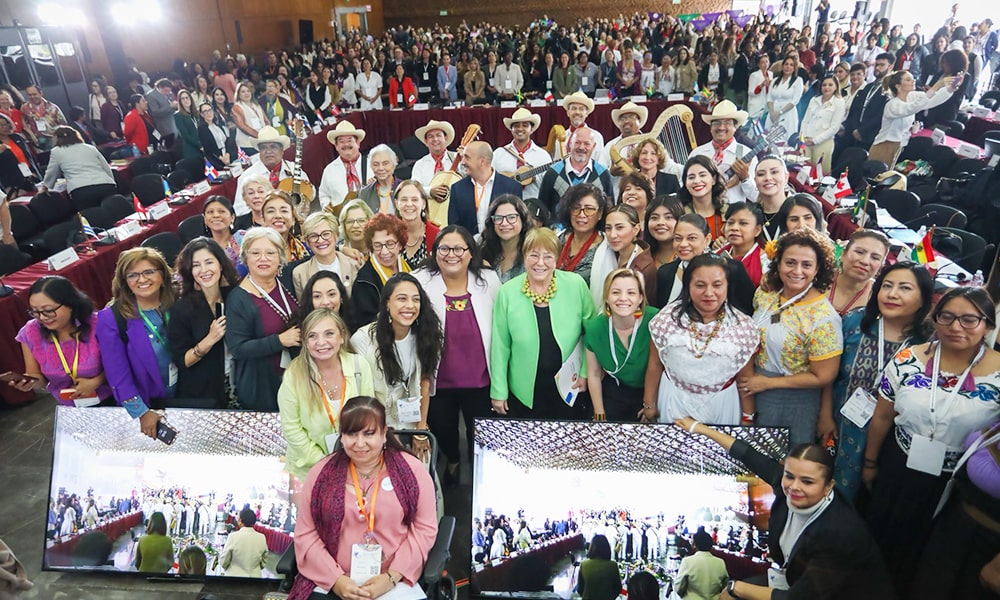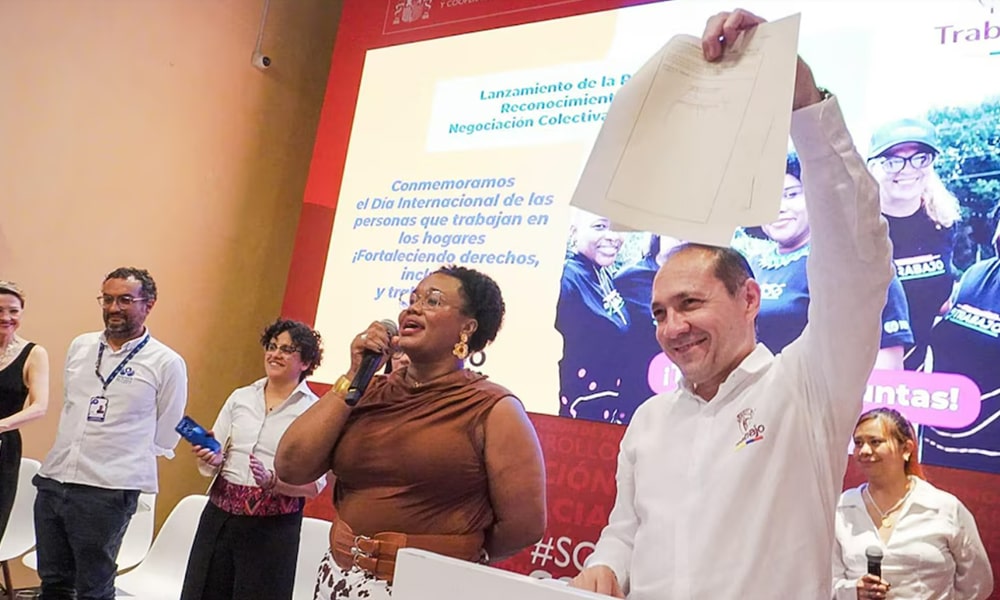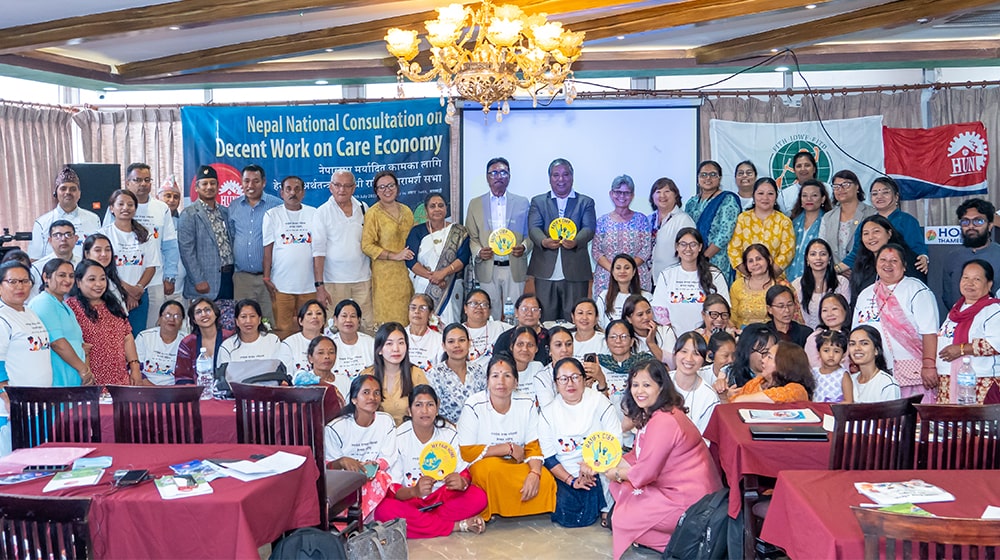It’s probably the biggest social movement that you’ve never heard of. Unless, of course, you are one of the millions of activists directly involved. But the world’s “invisible workforce” is finally coming out of the shadows. As of 5 September, the historic Convention Concerning Decent Work for Domestic Workers, also known as the Domestic Workers Convention, No. 189, comes into force.
Details
It’s probably the biggest social movement that you’ve never heard of. Unless, of course, you are one of the millions of activists directly involved.
But the world’s “invisible workforce” is finally coming out of the shadows.
As of 5 September, the historic Convention Concerning Decent Work for Domestic Workers, also known as the Domestic Workers Convention, No. 189, comes into force.
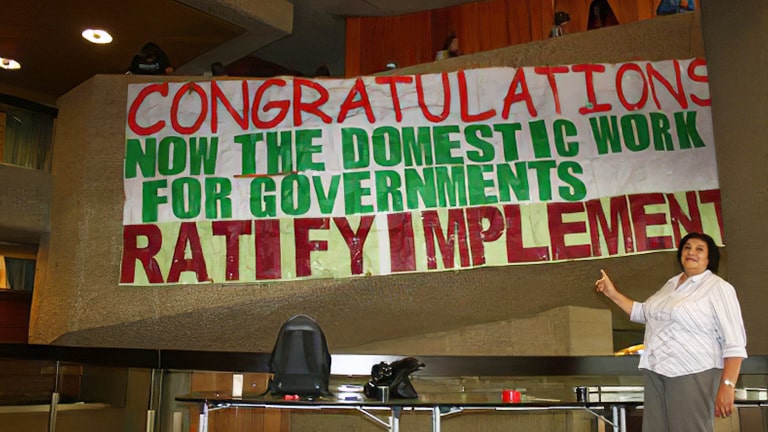
“For too long, the value of our work wasn’t recognised,” says Myrtle Witbooi, a former domestic worker who is now General Secretary of the South African Domestic Service and Allied Workers Union (SADSAWU) and Chair of the International Domestic Worker Network (IDWN).
“Convention 189 (C189) is finally helping to change that because now domestic workers have the same international standards as all other workers,” she tells Equal Times. “It’s an incredible achievement. I’ve been working in this sector for 46 years and I never thought I would see this happen in my lifetime.”
Domestic work, as Ai-jen Poo, Director of the National Domestic Workers Alliance (NDWA) in the United States succinctly puts it, is “the work that makes all other work possible”.
And yet those who do it – most of them women, many of them migrants and too many of them children – face a barrage of human and labour rights violations.
This ranges from long hours, low pay and no benefits to physical and sexual abuse, forced labour and trafficking.
But because historically it has been considered lowly, ‘women’s’ work which takes place in private homes, nannies, housekeepers, care givers and cleaners have been excluded from the protection of almost all major labour legislation.
Convention 189
The Convention will ensure the provision of the same basic labour rights to workers who care for families and households as those available to other workers.
This includes a minimum wage, clear terms and conditions of employment, daily and weekly (at least 24-hours) rest time, restrictions on in-kind payments, and respect for the right to freedom of association and collective bargaining.
- Uruguay became the first country to ratify C189 in April 2012, following adoption by the International Labour Organization (ILO) in June 2011.
- Philippines ratified it soon after in August 2012, thereby ensuring its passage into binding, international law.
Since then, a coalition of domestic workers, trade unions, national centres, human rights groups and grassroots organisations have created a groundswell of international support for the Convention.
“What domestic workers, trade unions and their allies have achieved is remarkable,” says Marieke Koning, a policy advisor at the International Trade Union Confederation (ITUC) whose work on the 12 x 12 Campaign has helped bring together all those involved.
“From a local to global level, the domestic workers – and those who support them – built the alliances and created the momentum to make this happen. This is something that can inspire the whole labour movement.”
To date, seven other countries – Bolivia, Italy, Germany, Mauritius, Nicaragua, Paraguay and South Africa have ratified C189.
Costa Rica has approved draft laws on its ratification and several other countries such as Belgium, Ecuador, Tanzania and Ireland have pledged their intent to do the same.
Other countries like Brazil, Philippines and Argentina, have passed significant new laws or regulations to improve the labour and social conditions of domestic workers.
In the US, for example, following a four-year campaign by the NDWA, New York State passed the first-ever Domestic Workers’ Bill of Rights in 2011. It was adopted by Hawaii this July, and should be ratified by California soon.
And in Philippines, Julius Cainglet of the Federation of Free Workers (FFW) says that ratification has had a direct impact on the lives of domestic workers.
“Wages have increased. All domestic workers now receive a minimum of 2,500 pesos per month [approximately 56 US dollars a month], which is an improvement as some workers used to be paid in-kind.”
100 million
The world over, domestic workers are on the frontline of a huge demographic shift.
“With more women in the paid workforce, they’re unable to provide the same level of family care giving work,” says Poo, who was named one of the World’s 100 Most Influential People for 2012 by Time Magazine for helping to put the domestic workers’ struggle firmly onto the US political agenda.
Add to that rapidly ageing populations, growing immigrant communities and an increase in precarious work in general, and you can see why the struggle for domestic worker rights can no longer be ignored.
The ILO estimates there are 53 million domestic workers worldwide.
However, because of the informal nature of much of the work, the true figure could be as high as 100 million.
This equates to approximately 3.6 per cent of the global workforce; in the Global South that figure rises to 12 per cent.
As many as 83 per cent of domestic workers are women and an estimated 10.5 million are children, most of them under-aged.
C189 serves to protect the most vulnerable members of a previously unprotected workforce.
It requires that governments prevent child labour in domestic work, and provide assurances that those children over the minimum working age can continue their education or further training while engaging in domestic work.
For migrant domestic workers, a report by Human Rights Watch (HRW) documented the routine abuses that many of them face such as the confiscation of passports, forced imprisonment in the workplace, beatings and in some cases, years of unpaid labour.
C189 aims to protect migrant domestic workers by ensuring the regulation of private employment agencies and an end to the practice of employer deductions to cover recruitment fees.
‘I have a dream’…for domestic workers?
The struggle for the recognition of the rights of domestic workers has been a long one.
The issue of ‘domestic servants’ was discussed at the ILO as early as 1936 when they were excluded from the Holidays with Pay Convention which established the right to six days paid leave for workers in manufacturing and other industries.
Even in August 1963, at the historic March on Washington for Jobs and Freedom, domestic work was on the agenda.
Before Martin Luther King Jnr made his “I Have a Dream” speech, John Lewis – then Chairman of the Student Nonviolent Coordinating Committee (SNCC), now a Congressman – spoke of his own aspirations for the proposed US civil rights legislation:
“What is there in this bill to ensure the equality of a maid who earns five dollars a week in the home of a family whose income is 100,000 dollars a year?”
In the 1990s, domestic workers in Latin America began to organise by building grassroot movements and a regional network supported by trade unions and other civil society partners. Today, Latin America remains the movement’s leading light.
From there, the organising bug spread to Africa and Asia where national movements in countries like the Philippines, Italy and South Africa began to build a critical mass.
Then, in 2006, the idea for an international convention started to take shape; five years later it was adopted at the 100th session of the ILO’s International Labour Conference in Geneva.
To seize the momentum of adoption, in 2011 the ITUC launched the 12 x 12 Campaign in collaboration with the IDWN and the International Union of Food Workers’ Association (IUF).
It now has the support of 11 other international partners such as HRW and Amnesty International, and there are 12 x 12 action teams in more than 90 countries.
“The idea was to give focus to the movement,” says Koning. “Our first priority, of course, was to see 12 countries ratify Convention 189,” and the completion of this goal is now imminent.
“But we have also been working on national labour law reforms and strengthening union participation in the domestic worker sector.”
The 12 x 12 Campaign also provides a one-stop-shop for information on the movement via the website, newsletter and Facebook page.
And now?
While the coming into force of C189 is a real cause for celebration, there is still plenty of work to be done. In the Middle East, for instance, not one country has ratified the Convention.
The violent, sometimes deadly, abuse of migrant domestic workers is also rampant in the region.
“It’s a major challenge,” admits Koning. “The ITUC recently sent a response to a proposed model contract for migrant domestic workers in the Gulf Cooperation Council (GCC) countries which falls short of C189.
“We will continue to hold GCC countries accountable for the fact that they need to adopt and implement decent national labour laws for domestic workers. There is no other way to go.”
To date, the domestic worker struggle may not have entered the public conscious in the same way that other contemporary social movements have, but it won’t stay that way for long, says Poo.
“The level on instability and insecurity facing working people globally is reaching an untenable scale.
“I think what has been the reality for domestic workers all along is increasingly becoming the reality for more and more of the global workforce.
“As a result, we are going to see the coming together of workers from all sectors, just like we’ve seen with the domestic workers.”
Elsewhere, there is a commitment to ensure that as many domestic workers as possible benefit from C189.
There are meetings, planning sessions and events taking place internationally to keep the issue in the spotlight.
At the UN High Level Dialogue on Migration and Development in New York on 3 and 4 October, for example, there will be side events on migrant domestic workers.
And from 26 to 28 October, the IDWN will hold its Founding Congress in Uruguay, which marks the second phase of the domestic worker movement.
According to Witbooi, phase two is all about consolidation, implementation and “education, education, education.”
“Listen, if you go in the streets and you ask a domestic worker, ‘what is Convention 189?’, she is going to look at you and think you are crazy,” she says.
“But if you ask a domestic worker ‘what would make your life better?’ She will say ‘I want a decent wage, decent working hours’ – and then she will get it. Convention 189 is no use as a piece of paper. We need to make it a reality.”
Source: Tamara Gausi/Equal Times

